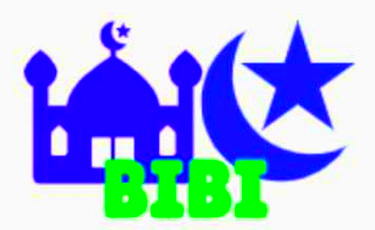Hub For Your Daily Islamic Insights 🕋 🕌

A Description of the Wudhu' of the Prophet, Comprehensive guide to prophetic ablution
Comprehensive guide to prophetic ablution
Free
Discover the beauty and precision of Islamic rituals with our illustrated guide, 'A Description of the Wudhu' of the Prophet.' This beautifully crafted book offers clear, step-by-step instructions on performing wudhu (ablution) exactly as practiced by the Prophet Muhammad, bringing together authentic teachings and vivid illustrations to enhance your learning experience. Perfect for beginners and those seeking to perfect their practice, this book is an invaluable resource for all ages. Elegant in design, it measures 8 x 10 inches for easy reading and handling, and features high-quality, full-color pages to make every detail easy to follow. Elevate your spiritual journey and ensure your worship is in accordance with prophetic tradition—order your copy today!
### A Comprehensive Guide to the Wudhu' of the Prophet (Peace Be Upon Him) Wudhu', or ablution, is an essential act of worship in Islam, manifesting a Muslim's physical and spiritual readiness to perform prayers (Salah). The method prescribed by the Prophet Muhammad (PBUH) not only embodies physical purification but also teaches spiritual reflection and mindfulness. This guide provides a detailed description of the Prophet's practice of Wudhu' ensuring that followers understand its significance, steps, and etiquette. #### The Importance of Wudhu' Wudhu' is the act of washing specific body parts to attain cleanliness before performing prayers. It is grounded in the Quran, where Allah commands believers to purify themselves. The Prophet (PBUH) emphasized the importance of Wudhu' when he stated, "Cleanliness is half of faith." This highlights both the physical and spiritual dimensions of purity in Islam. #### Steps of Wudhu' The process of Wudhu' as practiced by the Prophet Muhammad (PBUH) includes several clear steps: 1. **Intention (Niyyah)**: Before commencing Wudhu', one should form the intention in their heart to purify themselves for prayer. - **Hadith Reference**: "Actions are judged by intentions, so each person will receive that which they intended." (Bukhari & Muslim) 2. **Reciting Bismillah**: The ablution should begin with the utterance of "Bismillah" (In the name of Allah), signifying the act is performed for divine pleasure. 3. **Washing the Hands**: Begin by washing both hands up to the wrists three times, ensuring that water reaches all parts of the hands. 4. **Rinsing the Mouth (Madmadah)**: Take water into the mouth and rinse thoroughly, ideally repeating this three times. This serves as a reminder of the importance of cleanliness in speech. 5. **Nose Cleaning (Istinshaq)**: Draw water into the nostrils and expel it, again three times, which purifies the area often neglected. The Prophet (PBUH) used to emphasize this part. 6. **Washing the Face**: Wash the face entirely three times. This includes from the hairline to the chin and from ear to ear. The face represents one's character and expression before Allah. 7. **Washing the Arms**: Wash the right arm up to the elbow three times, followed by the left arm. This symbolizes strength and the acts performed by hands in service to Allah. 8. **Wiping the Head (Masah)**: Wipe the entire head once with wet hands. This signifies humility and submission to God's will. 9. **Wiping the Ears**: Using the same wet hands, wipe the insides and outsides of the ears once. This reflects the readiness to hear Allah's guidance. 10. **Washing the Feet**: Finally, wash the feet up to the ankles three times, beginning with the right foot. This symbolizes mobility in the path of righteousness. #### Additional Aspects of Wudhu' - **Order of Tasks**: It is recommended to follow the prescribed order during Wudhu'. The Prophet (PBUH) maintained this order consistently. - **Water Usage**: Moderation in water use is encouraged. Even during Wudhu', the Prophet (PBUH) illustrated the importance of not wasting water, reinforcing environmental consciousness. - **Sunnah Practices**: Additional acts performed by the Prophet during Wudhu' are mask (washing the thumb part of the foot) and rinsing three times instead of a single rinse. Performing these sunnah acts can enhance the reward for Wudhu'. - **Du'a (Supplication)**: It is Sunnah to recite particular supplications after completing Wudhu', such as: "Ashhadu an la ilaha illallah wahdahu la sharika lahu wa ashhadu anna Muhammadur Rasoolullah" (I bear witness that there is no deity but Allah, He is One, He has no partner; and I bear witness that Muhammad is His messenger). #### Spiritual Benefits of Wudhu' The act of performing Wudhu' goes beyond physical purification. It instills serenity and mindfulness. As such, it serves several spiritual benefits: - **Forgiveness of Sins**: According to a Hadith, the Prophet (PBUH) mentioned that when a believer performs Wudhu', their sins are washed away with the flowing water. - **Increased Focus in Prayer**: With the mind and body purified, concentration and devotion in Salah is heightened. - **Protection from Shaytan (Satan)**: Regularly performing Wudhu' offers protection against negative influences. #### Conclusion The Wudhu' practiced by the Prophet Muhammad (PBUH) is a profound ritual interwoven with physical and spiritual significance. Engaging in this act not only states one's readiness for prayer but also prepares the heart and mind for communion with Allah. As you cultivate the spirit of Wudhu' in your daily life, remember its essence lies in intention, mindfulness, and purity. By adhering to the Sunnah of Wudhu', we connect deeply with our faith, embrace spiritual clarity, and approach Salah with humility and devotion, illuminating our path as we seek to draw nearer to Allah.
